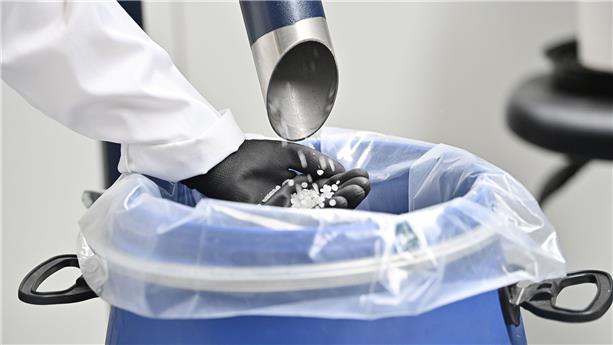
Recycled plastics
Discover our solutions for producing and using high-quality recycled plastic materials (PET, LDPE or PVC).
Discover the offer

The first "bottle-to-bottle" plant was opened in June 2009 in the Paris region, namely France Plastiques Recyclage (FPR). It aims to:
SUEZ and Unilever towards a fully circular packaging model - SUEZ
Credit: SUEZ group